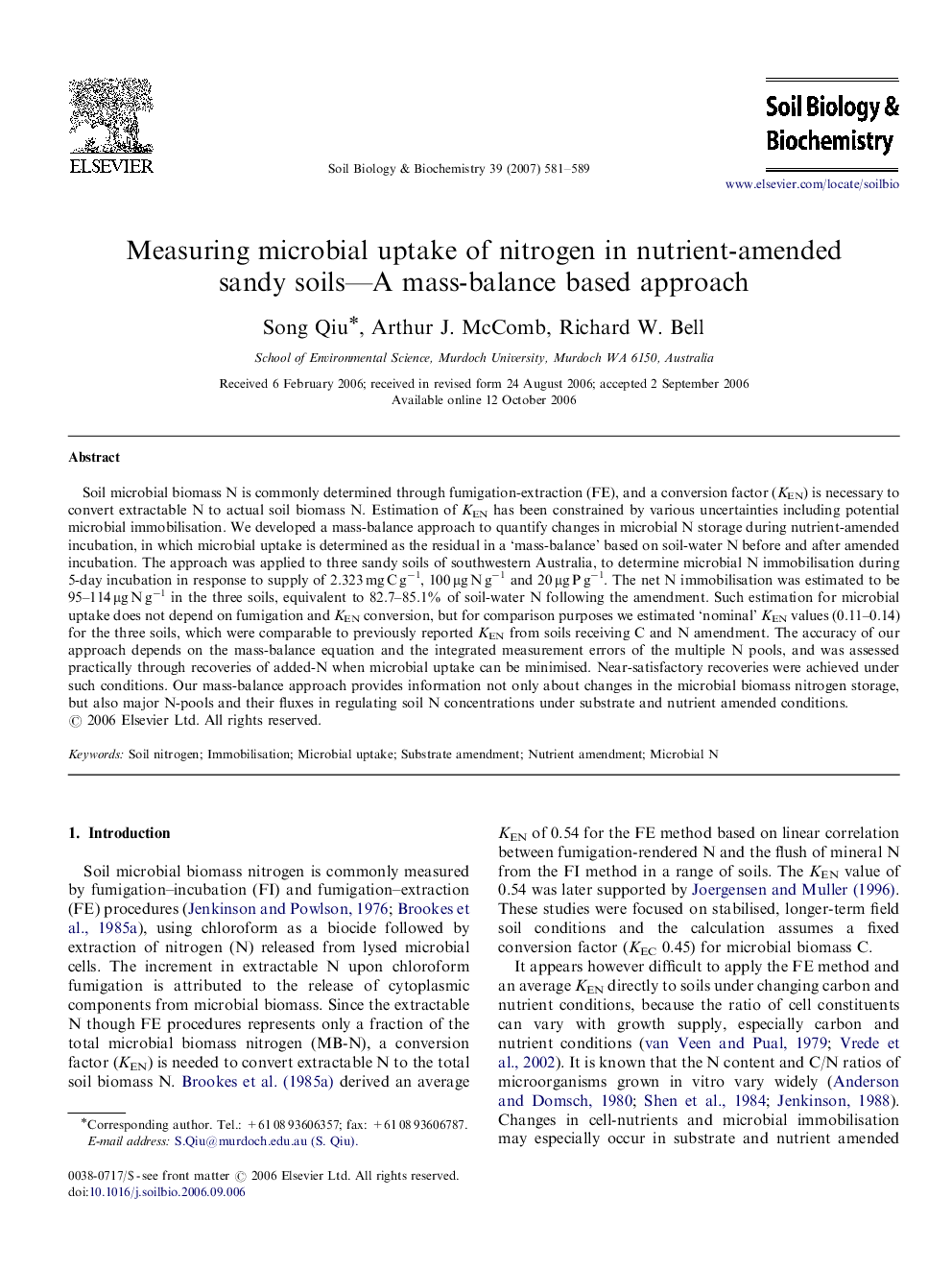| Article ID | Journal | Published Year | Pages | File Type |
|---|---|---|---|---|
| 2026478 | Soil Biology and Biochemistry | 2007 | 9 Pages |
Soil microbial biomass N is commonly determined through fumigation-extraction (FE), and a conversion factor (KEN) is necessary to convert extractable N to actual soil biomass N. Estimation of KEN has been constrained by various uncertainties including potential microbial immobilisation. We developed a mass-balance approach to quantify changes in microbial N storage during nutrient-amended incubation, in which microbial uptake is determined as the residual in a ‘mass-balance’ based on soil-water N before and after amended incubation. The approach was applied to three sandy soils of southwestern Australia, to determine microbial N immobilisation during 5-day incubation in response to supply of 2.323 mg C g−1, 100 μg N g−1 and 20 μg P g−1. The net N immobilisation was estimated to be 95–114 μg N g−1 in the three soils, equivalent to 82.7–85.1% of soil-water N following the amendment. Such estimation for microbial uptake does not depend on fumigation and KEN conversion, but for comparison purposes we estimated ‘nominal’ KEN values (0.11–0.14) for the three soils, which were comparable to previously reported KEN from soils receiving C and N amendment. The accuracy of our approach depends on the mass-balance equation and the integrated measurement errors of the multiple N pools, and was assessed practically through recoveries of added-N when microbial uptake can be minimised. Near-satisfactory recoveries were achieved under such conditions. Our mass-balance approach provides information not only about changes in the microbial biomass nitrogen storage, but also major N-pools and their fluxes in regulating soil N concentrations under substrate and nutrient amended conditions.
